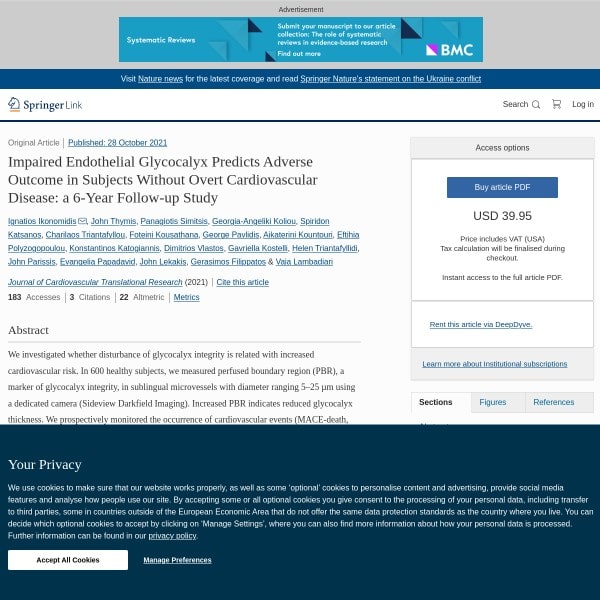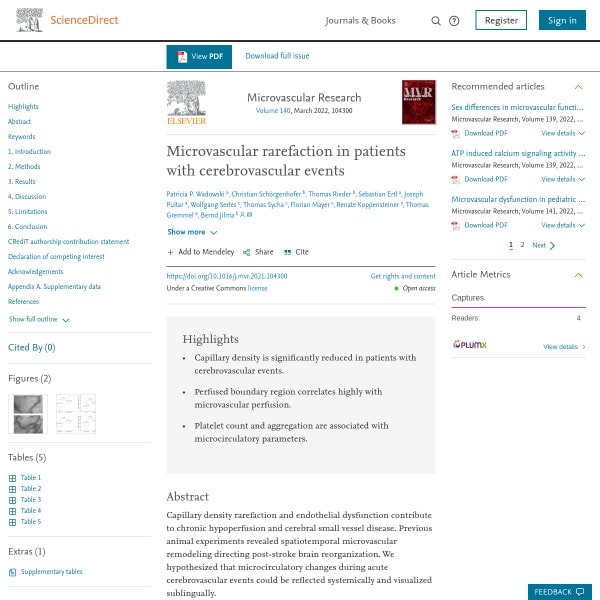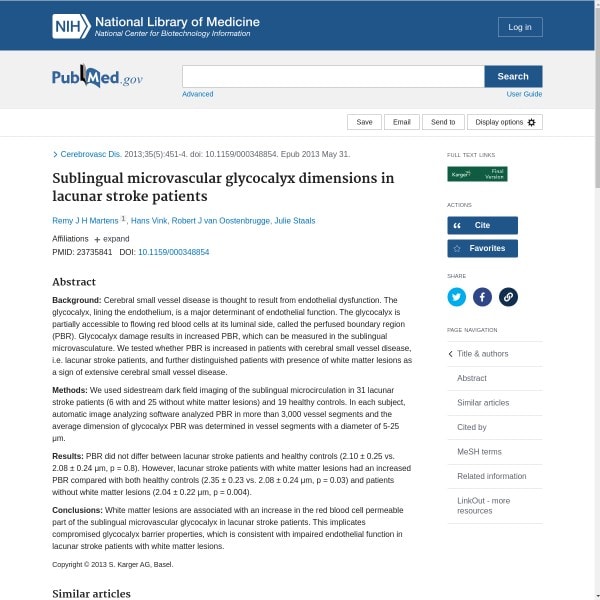- All
- adolescence
- Aging
- Anesthesia
- Aortic Stiffness
- Arterial Stiffness
- Atherosclerosis
- Blood Brain Barrier
- Brain
- Cancer
- Cardiovascular
- Cholesterol
- COVID-19
- Critical Care
- Dementia
- Dengue
- Diabetes
- Dialysis
- Differential Effects
- Epilepsy
- Ethnicity
- Gastrointestinal
- glycocalyx disorders
- Heart
- hemorrhagic shock
- High Intensity Interval Training
- Hypernatremia
- Hypertension
- Inflammation
- Intensive Care
- Jejunum
- Kidney
- Leukocyte
- Malaria
- Muscle
- Myocardial
- Nox Activity
- Obesity
- Oncology
- Opthamology
- Oxidative Stress
- Pediatric
- Periodontal
- Preeclampsia
- Pregnancy
- Psoriasis
- Renal
- Retina
- Rheumatoid Arthritis
- Sars-Cov-2
- Scleroderma
- Sepsis
- Septic
- Sex
- Smoking
- Stroke
- Syndecan
- Syndrome X
- Systemic Sclerosis
- Veterinary
- Viruses
- White Matter Lesions
- Citation
- Journal of Cardiovascular Translational Research 28 Oct 2021
- Date
- October 28, 2021
- Link
- View Link
Abstract We investigated whether disturbance of glycocalyx integrity is related with increased cardiovascular risk. In 600 healthy subjects, we measured perfused boundary region (PBR), a marker […]- Citation
- ScienceDirect 23 December 2021
- Date
- December 23, 2021
- Link
- View Link
Abstract Capillary density rarefaction and endothelial dysfunction contribute to chronic hypoperfusion and cerebral small vessel disease. Previous animal experiments revealed spatiotemporal microvascular remodeling directing post-stroke brain […]- Citation
- Cerebrovasc Dis. 2013;35(5):451-4
- Date
- May 31, 2013
- Link
- View Link
Abstract Background: Cerebral small vessel disease is thought to result from endothelial dysfunction. The glycocalyx, lining the endothelium, is a major determinant of endothelial function. The glycocalyx […]




